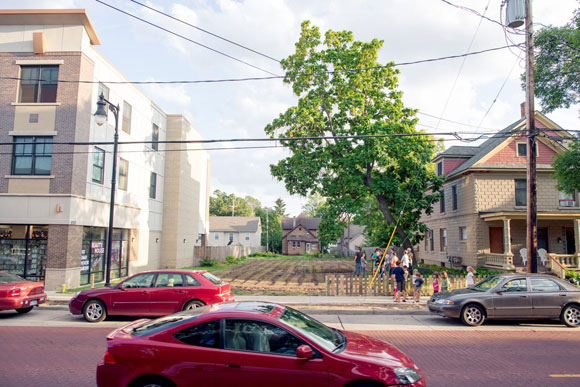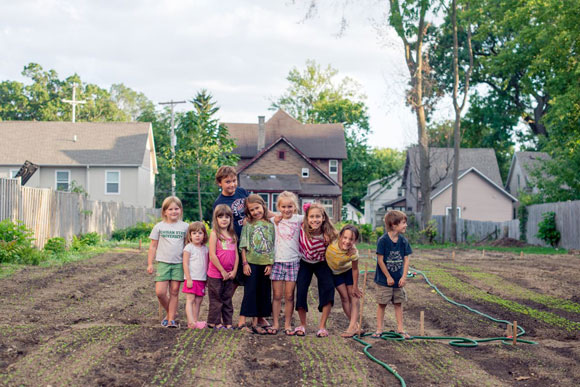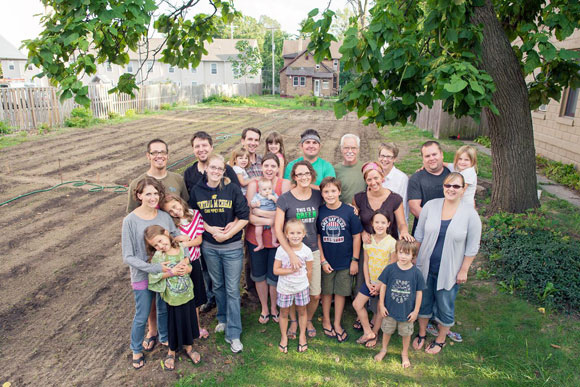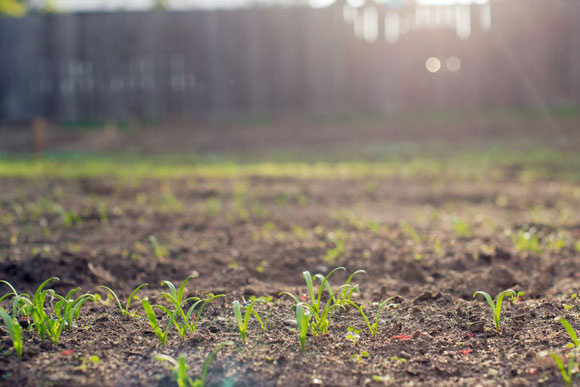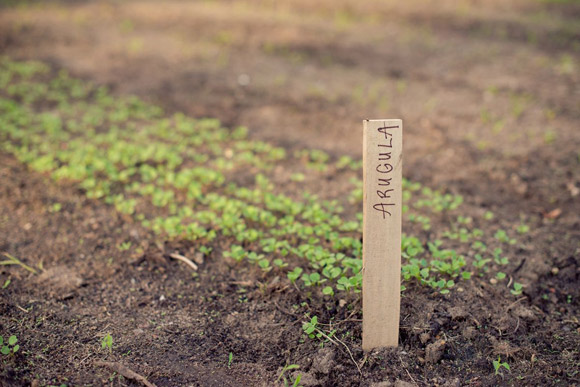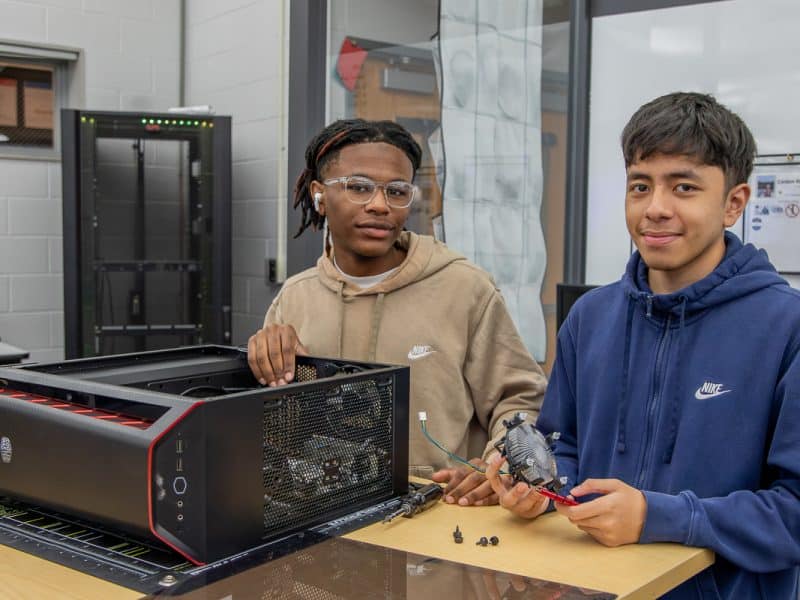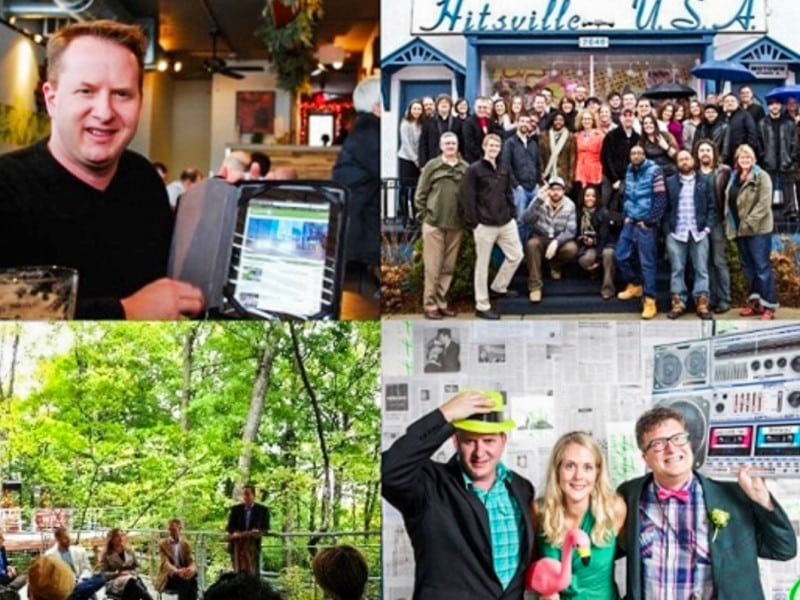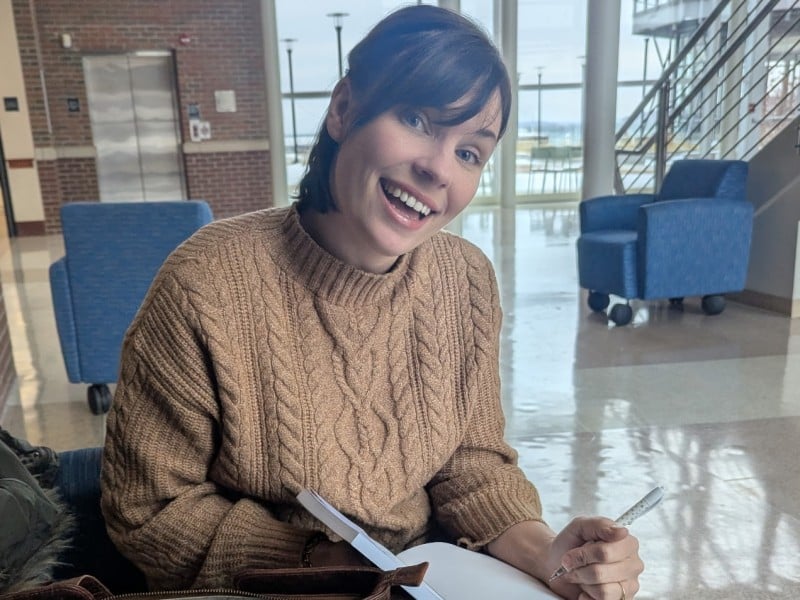Growing food in the city
Even if you live in the city, you can still be a farmer, and there’s a good chance you can make money selling the food you grow. All you need is a little bit of land, a small investment of time and money and the knowledge of how to get started.
That’s where CityFarmers.us comes in. This new website is designed to be a place where those interested in urban farming can find out how to begin growing food in the city, share expertise and ask questions. Registered users earn access to a variety of resources such as blogs, forums and posted articles.
Andy Dragt, a local urban farmer and part-time pastor at The Branch Church, developed the site mostly because he wanted a centralized place to organize and share information. He’s spent the last several years researching ways to grow food in the city and noticed there was not a site that combined the knowledge in one place.
Dragt recently went to Toronto for the Urban Agriculture Summit, a conference dedicated to people growing food in cities and those who support them. The idea behind the urban farming movement is that the number of farmers growing food on huge plots of land is decreasing, yet we still need to eat. Turning small plots of land into food growing areas provides neighborhoods with fresh, affordable food. Urban farming also helps the environment and may lead to employment opportunities.
Along with developing the CityFarmers.us website, Dragt, his friend Jeff Verkaik and a group of several families have started a SPIN farming adventure here in Grand Rapids. SPIN stands for Small Plot Intensive and it’s a type of farming where individuals or groups grow food on less than an acre of land. The land may be on their own property, the property of others or in an open space.
Not only is the food grown for personal consumption, but SPIN offers a methodology for earning a decent return on the investment of city farming by selling produce to local restaurants and markets.
“If you choose the right crops that make sense in the city, manage them well, and grow things that can grow in succession, then you should be able to generate $50,000 on a half acre of land,” Dragt says.
Dragt, Verkaik and friends rented a 6,000 square foot plot of land from Bazzani + Associates located on Wealthy Street near Diamond Avenue. They spent a day tilling the land in July and recently planted their first seeds. They’re calling the space Uptown Farm and hope to sell some of their naturally grown salad greens and root vegetables to local restaurants and businesses after the fall harvest.
Next summer, the goal is to start planting earlier and grow a succession of crops throughout the season. The Uptown Farm group is interested in working with restaurants in the area committed to using local foods. They may also sell produce at the Fulton Street Farmers Market during the Wednesday Evening Market when new vendors have the chance to participate. Ideally, they want to show that the Uptown Farm on Wealthy Street has economic value.
“It’s an extended effort by many families, which lets us take the risk and try this,” says Dragt.
The idea for the Uptown Farm and the CityFarmers.us site evolved from weekly dinners involving Dragt, Verkaik and a few others. They realized they shared the same passion for growing food and if they combined their efforts, they could bring about sustainable change in their community.
“We all like growing things in our backyards and have gardens,” says Verkaik. “We thought it could play a bigger role in Grand Rapids.”
The group wants to help others learn about urban farming and share the resources they’ve discovered. They’re considering a cooperative membership organization where city farmers work together, sharing tillers and seeders as well as manpower.
The Uptown Farm group is looking for additional land, too. If anyone has extra, un-used space on his or her property, no matter how small, food can be grown there in a way similar to the community supported agriculture (CSA) philosophy.
“In exchange for letting us use their land and water, the owner would get a basket of food each week,” Dragt says.
Dragt and Verkaik insists they’re no experts, but they want to get people thinking about growing food in the city and they want to use the social networking cityfarmers.us site as a way to collect and share ideas.
“Anyone with minimal resources can give urban farming a shot,” says Dragt.
The Uptown Farm group would like to share their knowledge about urban farming with others. They’re also interested in talking with local restaurants and anyone with available land. Here’s the information you need to find out more:
– Visit CityFarmers.us online to find out more.
– Become a member on the site and share your experiences with others.
– Contact Andy Dragt if you are interested in buying produce or if you have land available for an urban farm.
– Like them on Facebook.
– Follow @4cityfarmers on Twitter.
Sources: Andy Dragt and Jeff Verkaik
Writer: Heidi Stukkie, Do Good Editor
Photos taken by Jenn Anibal Photography.

